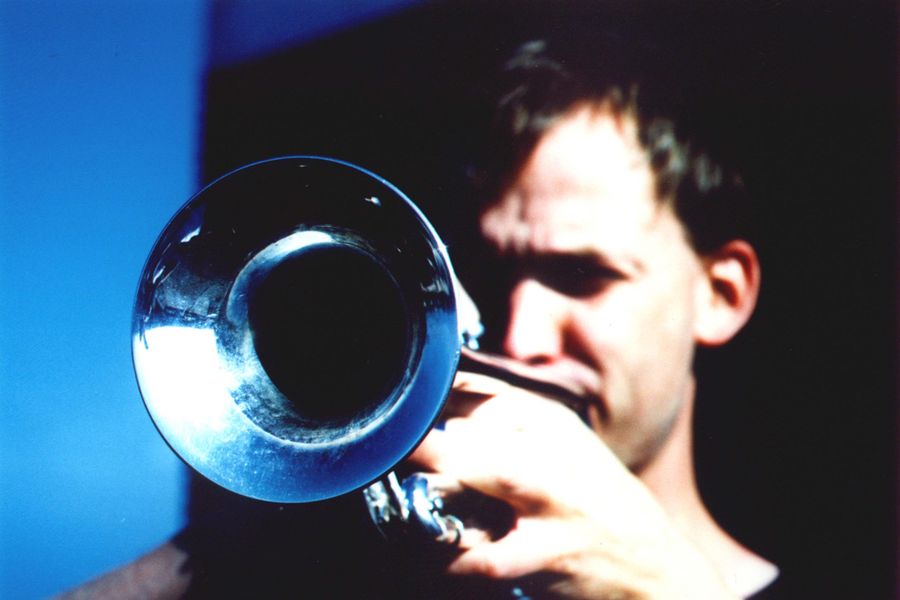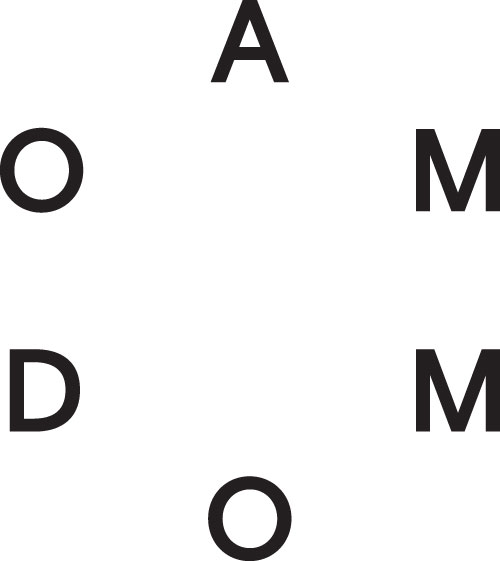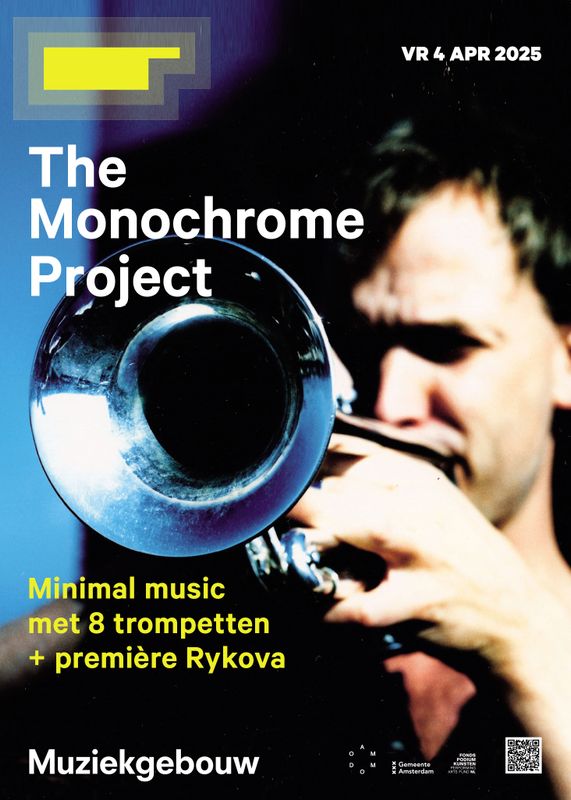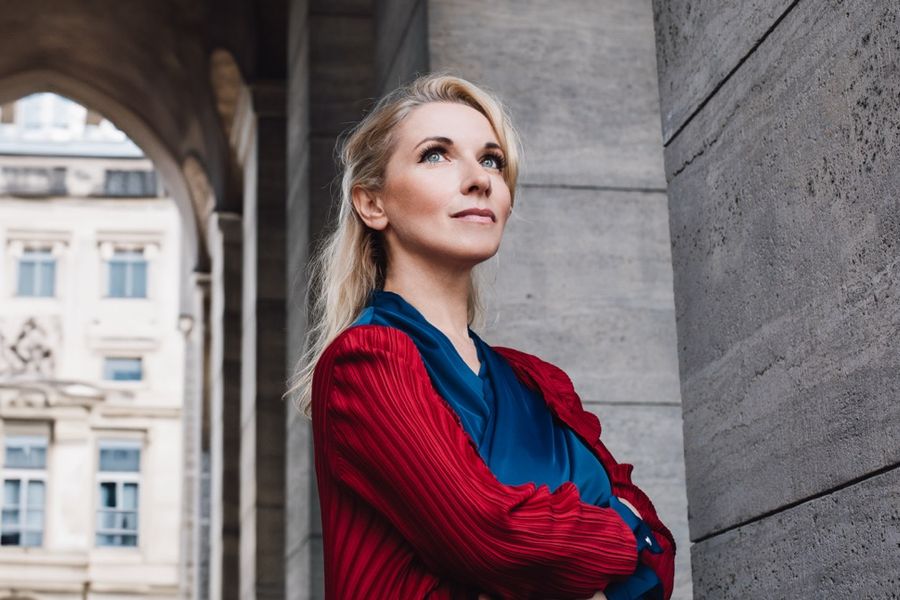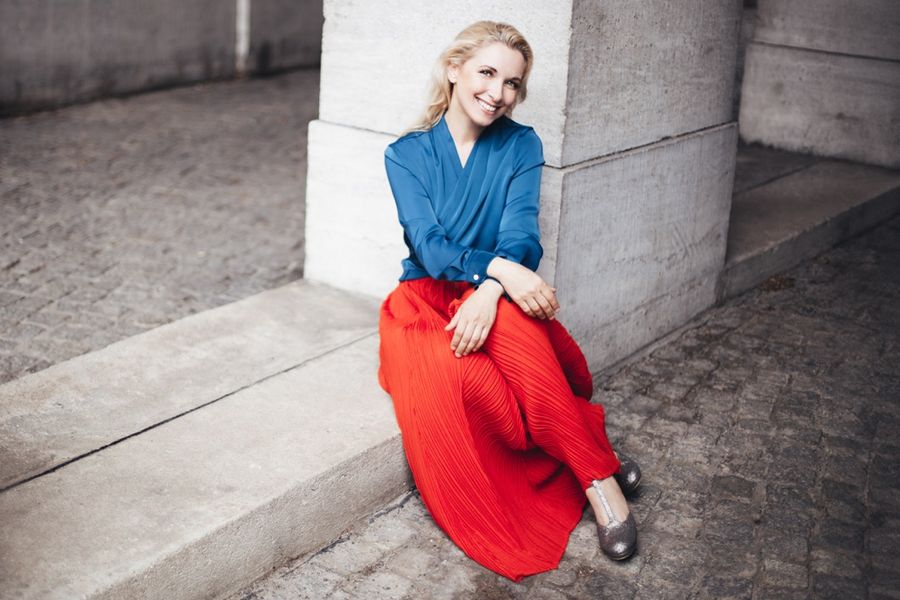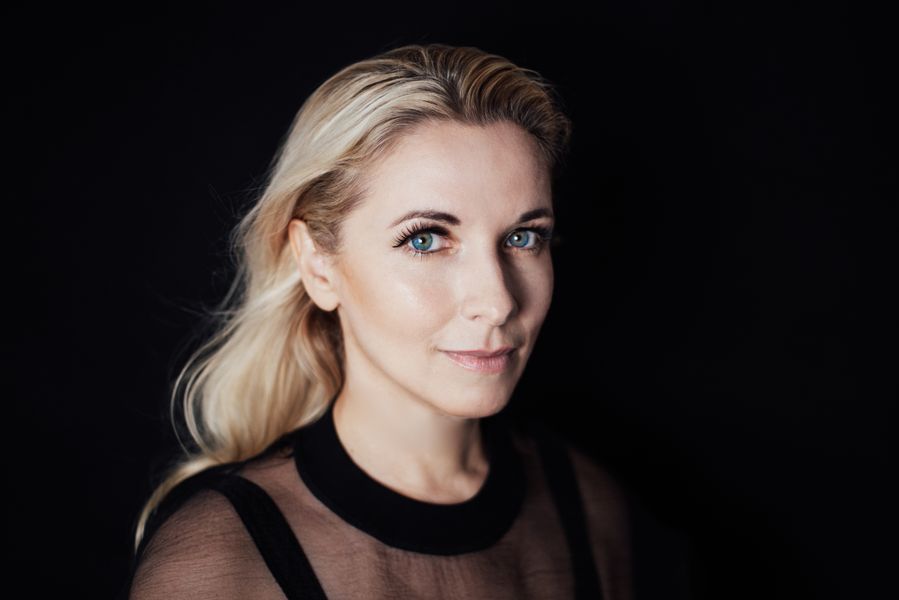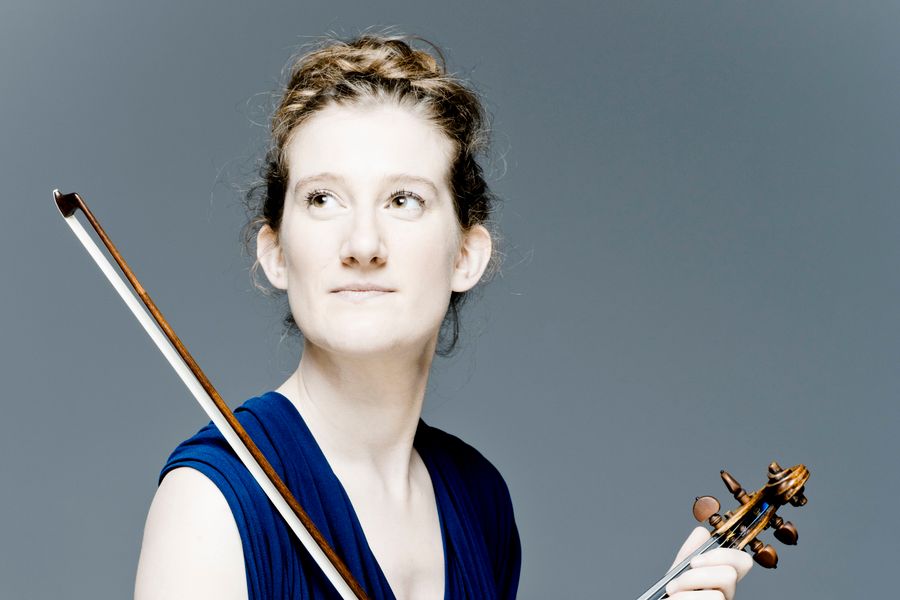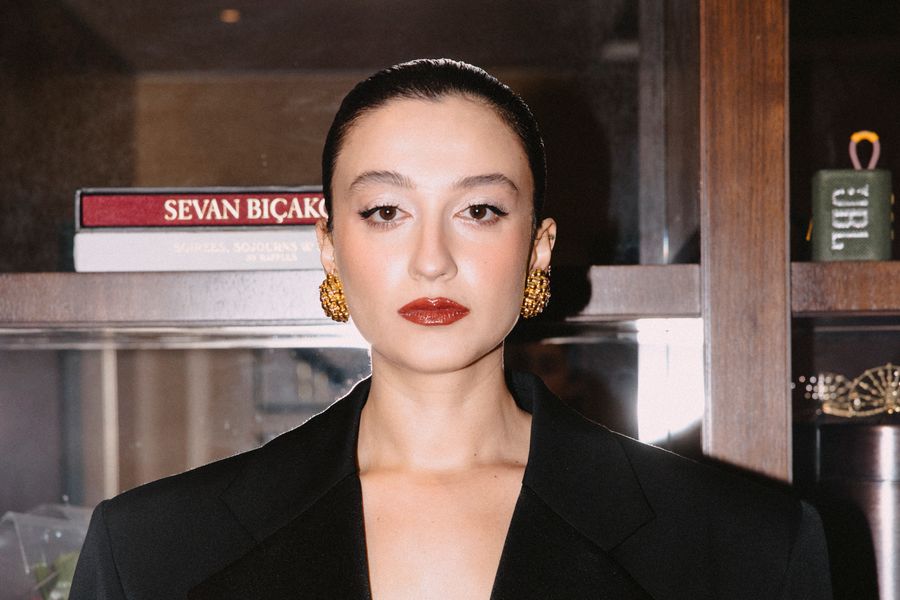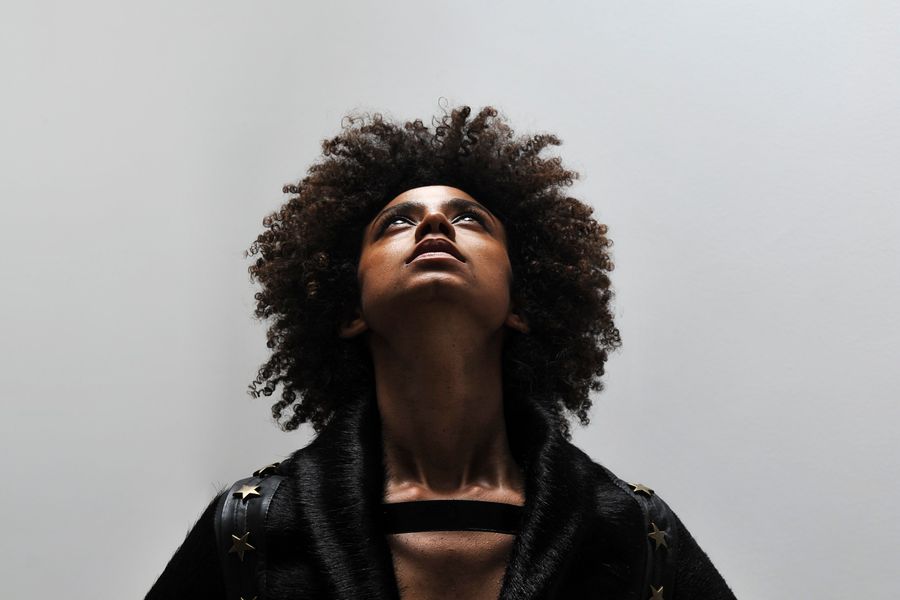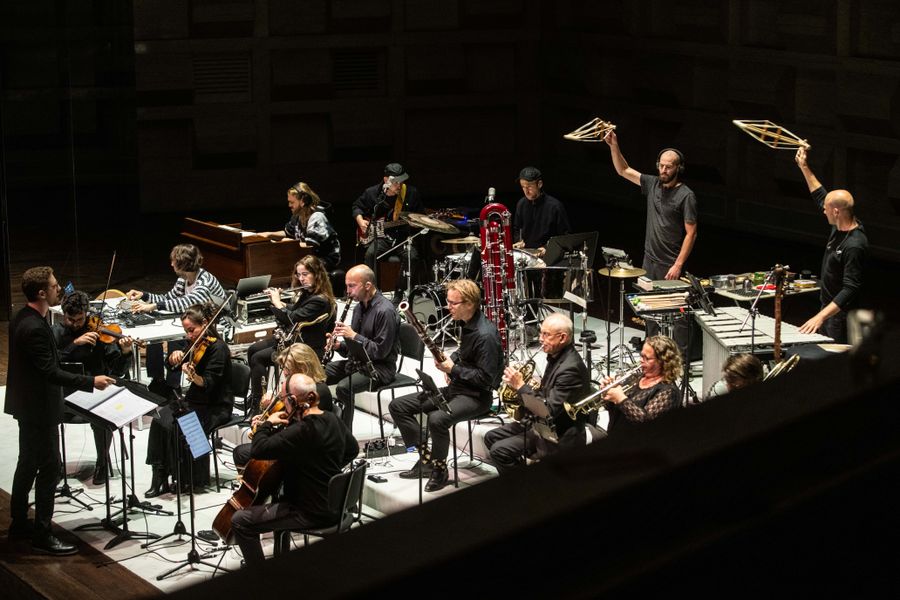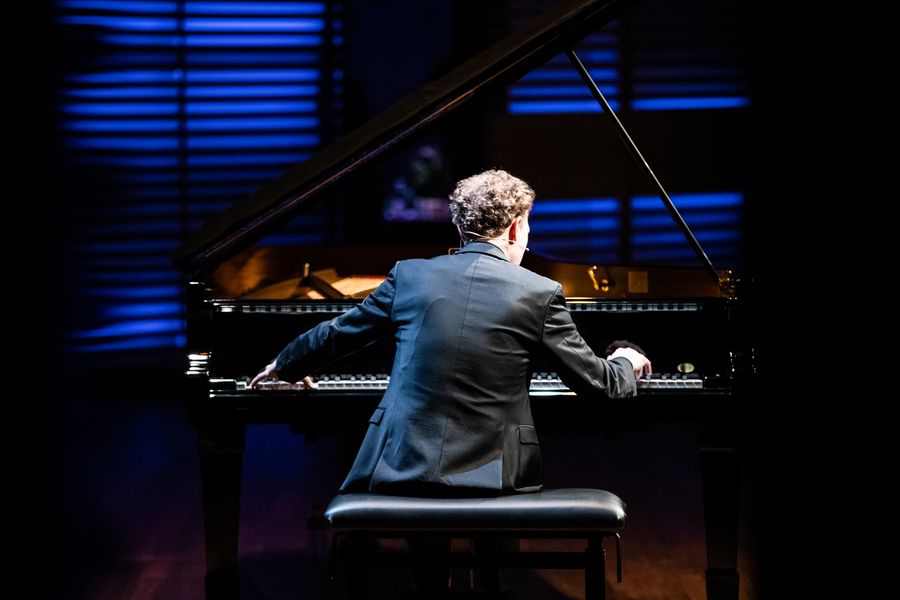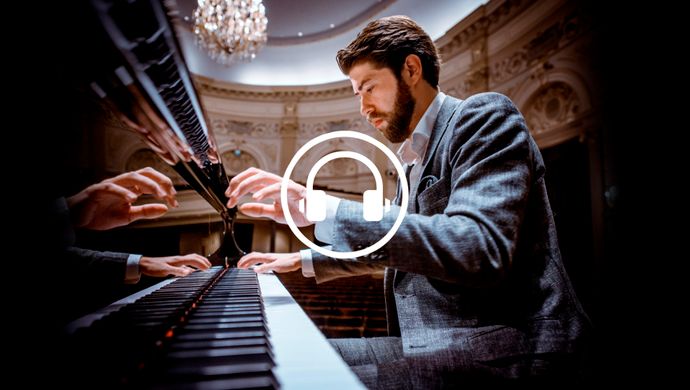Highlights
April 2025
The month of April is full of musical highlights! We have selected special concerts in different genres.
-
Minimalism at its most powerful
The Monochrome ProjectEight trumpeters led by innovator Marco Blaauw
Rykova, Leo Smith, Janulytė, EastmanFri 4 Apr 2025Less is definitely more with The Monochrome Project. Their unique eight-trumpet ensemble has delivered many powerfully minimalist experiences at the Muziekgebouw in the past. Sometimes with just a few notes, but with an enormous richness of sound and imagination in the compositions. This time, the ensemble presents a new work by Elena Rykova, who uses sound to create a sense of space.
In addition to this world premiere, the ensemble will perform a new composition by Wadada Leo Smith, who made a name for himself as a trumpeter in the American jazz avant-garde. The program also features Unanime, a piece specially composed for the ensemble by Lithuanian composer Justė Janulytė. The Monochrome Project was founded in 2015 by trumpet innovator Marco Blaauw, following his collaboration with minimalist pioneer LaMonte Young.
This concert was originally scheduled for April 2, 2025. However, for planning reasons, the concert has been moved to Friday April 4, 2025. Tickets that have already been sold remain valid, ticket buyers receive a notification.
This concert will be recorded to be broadcast later by NTR on NPO Klassiek
Program
Wadada Leo Smith The Celebration of Unity with the Indigenous People’s Nations Across the USA
Wadada Leo Smith The Flight of the Eagle
Elena Rykova No Grid in the Sky (World premiere)*
Justė Janulytė Unanime
* The world premiere of Elena Rykova is made possible with the support of AmmodoCredits
Marco Blaauw trumpet
Christine Chapman trumpet
Christopher Collings trumpet
Mathilde Conley trumpet
Lucy Humphris trumpet
Bob Koertshuis trumpet
Anders Nyqvist trumpet
Laura Vukobratovič trumpet
with special guest
Dirk Rothbrust percussion -
Sonata Marathon I
Tamara StefanovichGroundbreaking piano music from the 20th century and early Baroque
Bach, Soler, Busoni, Scarlatti, IvesSat 5 Apr 2025Pianist Tamara Stefanovich is more than just a gifted virtuoso, she is above all a free-spirited musical thinker. She demonstrates this once again with this marathon around the classical piano genre par excellence, the sonata. No Beethoven, no ironclad repertoire and no well-trodden paths: Stefanovich instead makes an ardent plea for groundbreaking works from the early Baroque as well as from the 20th century. In three movements of an hour each, Bach is played alongside Busoni and Scarlatti alongside Skrjabin, each time with an introduction by Stefanovich herself. After successful performances at London’s Southbank Centre and Hamburg’s Elbphilharmonie, she now brings her acclaimed programme to the Muziekgebouw, where she has been a cherished guest for over a decade.
In the first part of her Sonata Marathon, Stefanovich starts with the primordial father of the keyboard repertoire, Johann Sebastian Bach. His son Carl Philipp Emanuel Bach is also featured, as well as his Italian counterpart Domenico Scarlatti – known for his countless keyboard sonatas. Antonio Soler, the Spanish composing monk, studied with Scarlatti. The programme traverses a vast musical landscape. From the polished mastery of early 20th-century piano virtuoso Ferruccio Busoni, we encounter the audaciously innovative Charles Ives, whose dissonant Three-Page Sonata features subtle nods to Bach.
★★★★★ - 'A remarkable feat of sustained pianism' (The Guardian)
● ● ● ● ● - 'Aanrader' (NRC)Program
Johann Sebastian Bach Sonata BWV 965 (after Sonata No. 1 by Jan Adam Reinken)
Antonio Soler Sonata in G minor No. 87
Ferruccio Busoni Sonatina seconda
Domenico Scarlatti Sonata in C minor K. 158
Domenico Scarlatti Sonata in G K. 13
Carl Philipp Emanuel Bach Sonata in G minor Wq. 65/17
Charles Ives Three-Page SonataCredits
Tamara Stefanovich piano
-
Sonata Marathon II
Tamara StefanovichGroundbreaking piano music from the 20th century and early Baroque
Scarlatti, Bartók, Eisler, Soler, HindemithSat 5 Apr 2025Pianist Tamara Stefanovich is more than just a gifted virtuoso, she is above all a free-spirited musical thinker. She demonstrates this once again with this marathon around the classical piano genre par excellence, the sonata. No Beethoven, no ironclad repertoire and no well-trodden paths: Stefanovich instead makes an ardent plea for groundbreaking works from the early Baroque as well as from the 20th century. In three movements of an hour each, Bach is played alongside Busoni and Scarlatti alongside Skrjabin, each time with an introduction by Stefanovich herself. After successful performances at London’s Southbank Centre and Hamburg’s Elbphilharmonie, she now brings her acclaimed programme to the Muziekgebouw, where she has been a cherished guest for over a decade.
The second part of the Sonata Marathon marks a shift in focus, highlighting some titans of the 20th century. Béla Bartók wrote his percussive Piano Sonata in his ‘piano year’ 1926 for an ‘Imperial Bösendorfer’, a grand piano with extra bass notes. Hanns Eisler’s First Piano Sonata is noticeably influenced by his teacher Schönberg, while Paul Hindemith composed his Third Piano Sonata in 1936, not long before he fled Nazi Germany. They are joined by the great sonata master Domenico Scarlatti and the composing monk Antonio Soler, both from earlier times.
★★★★★ - 'A remarkable feat of sustained pianism' (The Guardian)
● ● ● ● ● - 'Aanrader' (NRC)Program
Domenico Scarlatti Sonata in C K. 406
Béla Bartók Piano Sonata Sz. 80
Domenico Scarlatti Sonata in G minor K. 450
Hanns Eisler Piano Sonata Op. 1
Antonio Soler Sonata in D flat No. 110
Paul Hindemith Piano Sonata No. 3Credits
Tamara Stefanovich piano
-
Sonata Marathon III
Tamara StefanovichGroundbreaking piano music from the 20th century and early Baroque
Soler, Skrjabin, Scarlatti, Sjostakovitsj, Janáček, OestvolskajaSat 5 Apr 2025Pianist Tamara Stefanovich is more than just a gifted virtuoso, she is above all a free-spirited musical thinker. She demonstrates this once again with this marathon around the classical piano genre par excellence, the sonata. No Beethoven, no ironclad repertoire and no well-trodden paths: Stefanovich instead makes an ardent plea for groundbreaking works from the early Baroque as well as from the 20th century. In three movements of an hour each, Bach is played alongside Busoni and Scarlatti alongside Skrjabin, each time with an introduction by Stefanovich herself. After successful performances at London’s Southbank Centre and Hamburg’s Elbphilharmonie, she now brings her acclaimed programme to the Muziekgebouw, where she has been a cherished guest for over a decade.
The looming shadow of 20th-century horrors has become reality in part three of the Sonata Marathon. Galina Ustvolskaya's Piano Sonata No. 6 (1988) is an unprecedented outburst of violence; the aggressive Piano Sonata No. 1 (1926) by her teacher Dmitri Shostakovich sounds in retrospect like an ominous harbinger. Aleksandr Skrjabin’s ‘Black Mass’ sonata serves as a virtuosic exploration of chromaticism, while Leos Janáček’s Piano Sonata 1.X.1905 is a furious outcry against the killing of a protester. At most, Domenico Scarlatti and Antonio Soler soften the blow of raw expressiveness that Tamara Stefanovich delivers in the final movement of her Marathon.
★★★★★ - 'A remarkable feat of sustained pianism' (The Guardian)
● ● ● ● ● - 'Aanrader' (NRC)Program
Antonio Soler Sonata in G minor
Alexander Skrjabin Sonata No. 9 Op. 68 ‘Black Mass’
Domenico Scarlatti Sonata in G minor K. 8
Dmitri Sjostakovitsj Piano Sonata No. 1
Domenico Scarlatti Sonata in B minor K. 87
Leoš Janáček Piano Sonata 1.X.1905
Galina Oestvolskaja Piano Sonata No. 6Credits
Tamara Stefanovich piano
-
Schoenberg & Padding
New European Ensemble + Maria MilsteinTribute to 150-year-old innovator Schönberg
Schoenberg, PaddingThu 10 Apr 20252024 marks the 150th anniversary of the birth of the great music innovator Arnold Schoenberg. The New European Ensemble celebrates this with two of Schoenberg’s own works as well as a new composition by Martijn Padding. Padding associates Schönberg's music with various shades of gray but in Ma vie en couleurs he focuses on vibrant colors, giving meaning to red, blue, yellow, and purple. The NEuE will play Henk Guittart’s ensemble arrangement of the notoriously difficult Violin Concerto, with soloist Maria Milstein, who is a regular guest at the Muziekgebouw.
In 1933, following the Nazi regime’s rise to power, Schoenberg fled to America. There, in 1936, he composed his Violin Concerto. Like much of Schoenberg’s early American work, it sounds surprisingly tonal despite utilizing his well-known twelve-tone technique, which is characterized by the absence of a tonic. One of the first works that Schoenberg constructed entirely according to a twelve-tone row was the Serenade (1921-1923). Nice fact: the Serenade also happens to be the very first piece performed by the NEuE.
This concert will be broadcast live by NTR on NPO Klassiek
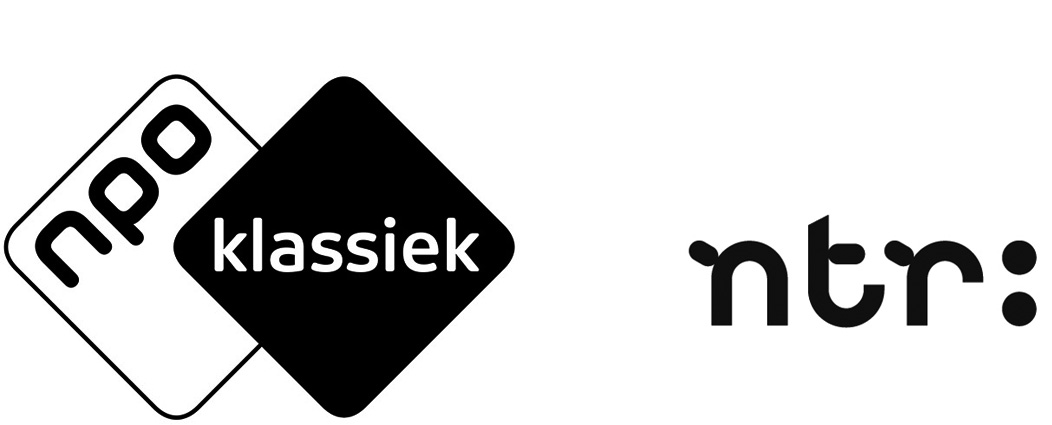
Program
19.15 uur / Foyerdeck 1 / Inleiding
By Thea Derks20.15 / Grote Zaal / Main programme
Martijn Padding Ma vie en couleurs
Arnold Schoenberg Serenade Op. 24
Arnold Schoenberg Violin Concerto (arr. Henk Guittart)Credits
New European Ensemble
Vitali Rozynko bass-baritone
Maria Milstein violin
Emlyn Stam viola
Henk Guittart conductor -
Melike Şahin
Unconventional Turkish singer on her way to European breakthrough
Fri 11 Apr 2025An unconventional, modern pop icon, Melike Şahin reimagines the present with a nod to Turkish psychedelia from the 1960s and 1970s. Euphoric guitars and organs blend with her contemporary singing on her debut album Merhem, a huge success in Turkey. She herself calls her style ‘Mediterranean Arabesque’, or a mix of Anatolian pop with all kinds of Middle Eastern styles.
With her single Diva Yorgun, Melike Şahin scored a big hit in her home country last summer; the song has been viewed over a hundred million times on YouTube. High time for the singer to conquer Europe. She has already proven that she can do this: as the frontwoman of the cult band BaBa ZuLa, she played all the major European festivals.
Please note: tickets for this concert are standing-room only.
Credits
Melike Şahin vocals
And musicians -
Passion of Shishani
Pynarello + ShishaniMusic by two groundbreaking artists: Florence Price and Shishani
< span style="color: black;">Price, ShishaniSun 13 Apr 2025Whilst all of the Netherlands is captivated by Bach’s St. Matthew Passion during Easter, Pynarello and the multi-talented Shishani—singer-songwriter, anthropologist, musicologist, and activist—present a modern take on the Passion. This unique musical collision merges the stunning sounds of Florence Price (1887–1953) and Shishani (1988). Price, the first African American woman to be recognized as a composer of symphonic works, fought racism and unequal opportunities. Her impressive body of work, consisting of more than 300 compositions, was rediscovered in 2009 in an abandoned holiday home.
Today, her work resonates in dialogue with Shishani, a socially engaged artist with roots in Namibia, Belgium, and the Netherlands, known for their hit Minority. Rebel collective Pynarello brings this encounter to life with a compact ensemble, where vocals, percussion, and classical strings create a thrilling tension between Shishani’s rhythmically driven sound world—inspired by soul, pop, and African music—and Price’s romantic, captivating compositions.
Program
19.15 uur / Foyerdeck 1 / Inleiding
By Shishani & Pynarello musiciMusic by Florence Price and Shishani
Credits
Pynarello
Shishani voice, text -
Boulez 100
Asko|Schönberg + I SOLISTIThe monumental Répons with electronics and six soloists
Boulez, TenneyThu 24 Apr 2025Music as a highly exciting spatial experience: that is the monumental 1981 masterpiece Répons by French composer Pierre Boulez. With Répons, Boulez created a unique sound world in which the acoustic sounds of the musicians change and whirl through the hall thanks to the use of subtle electronics, which were revolutionary at the time. As such, different sound worlds glide over and through each other. Six soloists that are arranged around the ensemble lend an extra dimension to the movements in the music. A rare opportunity to experience this unique work live.
Outside the hall, In a Large Open Space by James Tenney (1934-2006) can be heard. Whereas Boulez has meticulously written down how Répons should be played, the American Tenney gives the musicians great freedom in his long-toned works. By moving around in the space, the audience hears changes and shifts in the soundscape. An acoustic trip like no other.
This concert is a co-production of Muziekcentrum De Bijloke and Muziekgebouw aan ’t IJ
Program
19.15 uur / Foyerdeck 1 / Inleiding
By Michel Khalifa20.15 / Grote Zaal / Main programme
James Tenney In a Large Open Space
Pierre Boulez RéponsCredits
Asko|Schönberg
I SOLISTI
Bas Wiegers conductor
Miriam Overlach harp
Pauline Post piano
Jan Michiels piano
Jan Rokyta cimbalom
Joey Marijs percussion
Tom De Cock percussion
Maarten Buyl computer sonics and live electronics
Koen Keevel (PME-Technica Group) audio -
Boulez and the piano
Ralph van Raat + Gloria ChengRaw energy and tonal beauty by an uncompromising innovator
Boulez, Cage, Feldman, Lindberg, Zappa, StravinskyFri 25 Apr 2025The uncompromising innovator Pierre Boulez is heard in Structures for two pianos: steely music with the raw energy of a young rebel. Scherzo, an unpublished work that Boulez wrote when he was just 19, introduced by Ralph van Raat in 2023, is also full of energy. Courtes dérives à partir d’éclat is totally different. A mysterious play of colours without a strict structure, in which it is all about pure tonal beauty, just like in Morton Feldman’s enigmatically floating Two Pianos.
Ralph van Raat is a renowned expert on Boulez. In 2023, he performed a recital at the Muziekgebouw entirely devoted to the composer, featuring several unpublished works that Van Raat found in archives. Boulez composed Courtes dérives à partir d’éclat as a wedding gift for Grammy Award winner Gloria Cheng, as a token of their special bond.
Program
Pierre Boulez Structures pour deux pianos (boek 1)
Pierre Boulez Courtes dérives à partir d'éclat
Pierre Boulez Scherzo
Magnus Lindberg Play I
Frank Zappa Bob in Dacron
Morton Feldman Two Pianos
Igor Stravinsky Sonata for two pianosCredits
Ralph van Raat piano
Gloria Cheng piano





